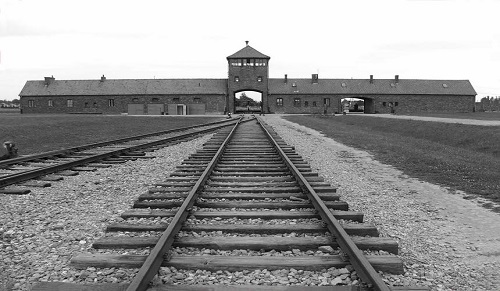 Vampire Weekend's Surprising Jewish Stories
Vampire Weekend's Surprising Jewish Stories


4 min read
Now is the time for every Jew to pledge active involvement in confronting the growing threat of anti-Semitism.
Holocaust Memorial Day this week marked the 70th anniversary of the liberation of Auschwitz. It was yet another moment meant to affirm that we have not forgotten.
We were the generation entrusted with the holy task of keeping alive the memory of 6 million who perished. For 70 years we built memorials in their names, we retold their stories, we included them in our prayers and took a small measure of solace in the ways we paid tribute to those who were victims of history’s most brutal expression of genocide.
But 70 years later it seems clear that our mission has changed. We can no longer afford to be merely a people of memory. As much as the past deserves recognition, it is the reality of the present that cries out for priority.
Seventy years, we are told by King David in the book of Psalms, is a lifetime. [Psalms 90:10] In the Talmud we read the story of the Jewish Rip Van Winkle, Honi ha-Magel, who fell into a long sleep of 70 years duration and could no longer recognize the world when he awakened. So much can change in seven decades. But when it comes to the Jews it seems that the more things change, the more they remain the same.
What would an Auschwitz survivor liberated from the death camp and gone into hibernation from that time to the present perceive as he made his way through our contemporary world? Picture him walking through the streets of France on his way to a synagogue he learns was recently surrounded by a mob screaming “death to the Jews.” Imagine him taking his child to a Jewish house of study as he realizes he needs to be guarded by a cordon of heavy security. Travel with him to Belgium as she spots the sign that says “we welcome dogs but not Jews.” Watch as he reads newspaper headlines which inform him that anti-Semitism is rampant around the world with the surprising twist that the word Israel seems to have become a more common synonym for the clearly intended word Jew.
Remembering is supremely important - but if it is to be of value it needs to be a spur to action in the present.
Yes, the Auschwitz survivor would be profoundly aware that what he is now witnessing has but small relationship to the unimaginable suffering he endured. It is certainly far less severe. Yet with the wisdom of his experience of the early stages of the Holocaust he would be keenly aware of the similarities. He would remember how it began with the world minimizing the threat. He would be keenly sensitive to the incremental stages of discrimination, of harassment and of persecution. Most of all he would be amazed that those who pride themselves on their civilized values could be so blind to the moral decay of civilization around them and so passive about their response to the evil forces threatening their survival.
As a post-Holocaust Jew I grew up with the mantra that “never again” was more than a slogan; it was a prediction. The world would certainly never again countenance unrestrained evil. Never again could Jews become victims. But today we tragically know that anything is possible. And that is why I think our collective priorities need to be transformed. When a building is burning, firemen dare not focus on past conflagrations. Full attention needs to be paid to the present danger. Remembering is supremely important - but if it is to be of value it needs to be a spur to action in the present.
Memory must go hand-in-hand with commitment. Without a future, the past cannot leave a legacy. Forgive me then if I urge that days of remembering must take second place to days of dedication. Now is the time for every Jew concerned with Jewish survival to pledge active involvement in confronting the growing threat of anti-Semitism – the blatant and open anti-Semitism against Jews as Jews, and the insidious and camouflaged anti-Semitism directed against Israel.
That, after all, has always been the goal of memory as well as the reason for its importance to our people.
